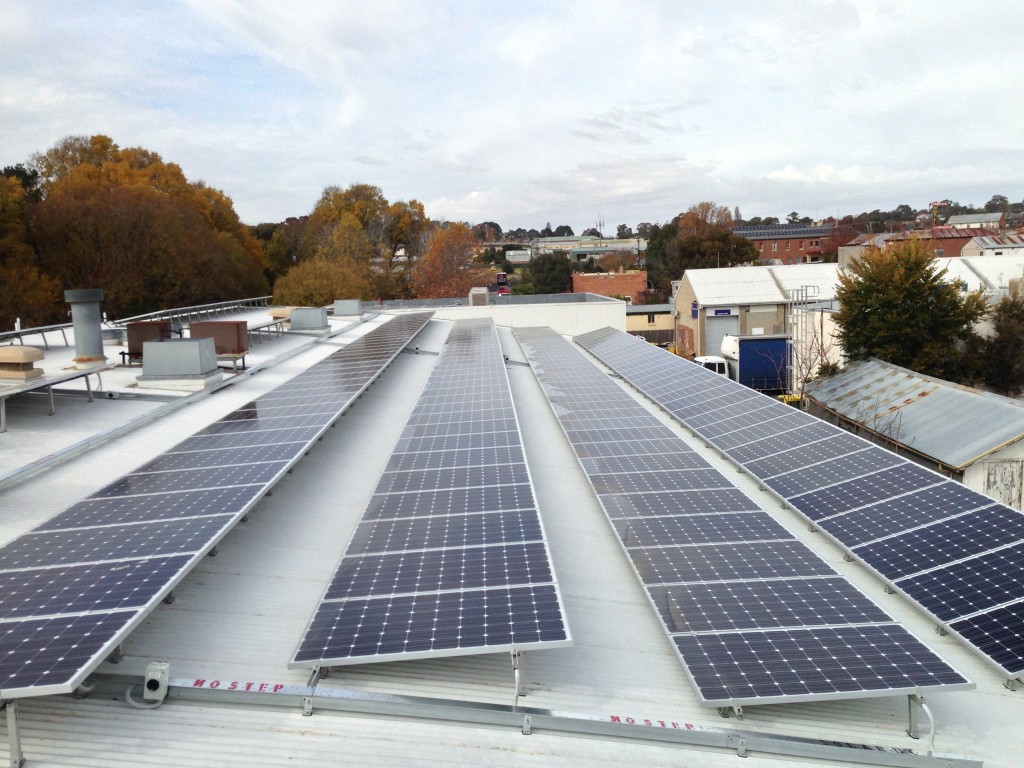Questions to ask a solar installer
When it comes to installing solar PV or solar thermal at your business, here are a few questions that you need to ask.
Questions for both solar PV systems
- Can you provide a written quotation?
Tip: If you decide to proceed, don’t agree to anything until you receive a formal contract of sale detailing all the terms and conditions. - How long have you been in business and how many installations have you carried out?
- Is there a deposit required and what are the refund conditions? (If a deposit is required, this should not be more than 10% of the overall cost).
- What is your policy if the date you promise to deliver and install the equipment is not met?
- Do you offer a warranty on the equipment? Can the warranty be extended? Is it backed by an insurer or a distributor in the event that the manufacturer becomes bankrupt?
Tip: When comparing different quotes, compare the length of the warranties being offered. You should look for a minimum 10 years on the panel and 5 years on the inverter. Also check if the manufacturers of the equipment have an office in Australia. This could be useful if something goes wrong. - What happens if a repair is needed during the warranty period? Who handles this?
- Do you install yourself or use subcontractors?
- If you use subcontractors and something goes wrong, who is responsible?
- Can you provide me with references for installations that you’ve undertaken for businesses in my area?
- Will you come back in six months to check that the installation is working as claimed and generating the right amount of power? If not, can you put in a monitor so I can check the system is working properly?
- Will shading from trees or buildings lower the performance of this solar equipment?
- Does the price being quoted include all available rebates and grants? If it does, are you handling all the associated paperwork for them?
- Do you provide a maintenance plan for systems that you install?
- How long will it take for the system to pay for itself?
Additional questions for solar PV
- What size of solar PV system do you recommend and how much electricity will it be able to generate?
Tip: If you want to self-consume the energy produced by the solar panels, let the installer know how much energy you use and when you’re using it throughout the day. This may affect their system recommendation. - Can I expand the number of solar panels at a future date?
- What brand of panels are you proposing to install? Are they ‘Tier 1’, ‘Tier 2’ or ‘Tier 3’?
- What brand of inverter are you proposing? Does it meet Australian standards and what warranty do you offer with it?
- What commitments will you provide to ensure the system is connected to the electricity grid?
- Is the cost of electricity metering included? If not, how much will it cost and who is responsible for arranging it?
- Who is responsible for negotiating with the electricity retailer to get the best deal for me? What help can you provide, if I am responsible for this?
What if you’re renting your business premises?
If you are renting your business premises, you can still install solar and take it with you when you leave. Ask permission from your landlord to install solar on the proviso that you leave the premises in the same condition you found them. Given that solar panels can last 25 years, this will allow you to reap the full benefit of your solar PV investment.
Yass Soldiers Club, NSW
To counter their huge demand for energy and faced with 40% increases in energy costs, Yass Soldiers Club installed a 100kW solar PV system.
“We were looking at an expected electricity bill of $200,000 for 2013-14 and that was just not sustainable as we want the venue to grow alongside the community,” said General Manager Robert Packwood.
He expects the solar installation to absorb 20-25% of the club’s annual energy needs and to have paid for itself within five years. In the 2013-14 financial year, the electricity bill ended up being $120,335 and their solar system generated the equivalent of $48,394 of electricity.
“The panels are expected to last for 25 years, so the financial savings over time are going to be very significant,” he said. “In terms of ROI, it’s turning out to be an extremely good investment.”[1]



